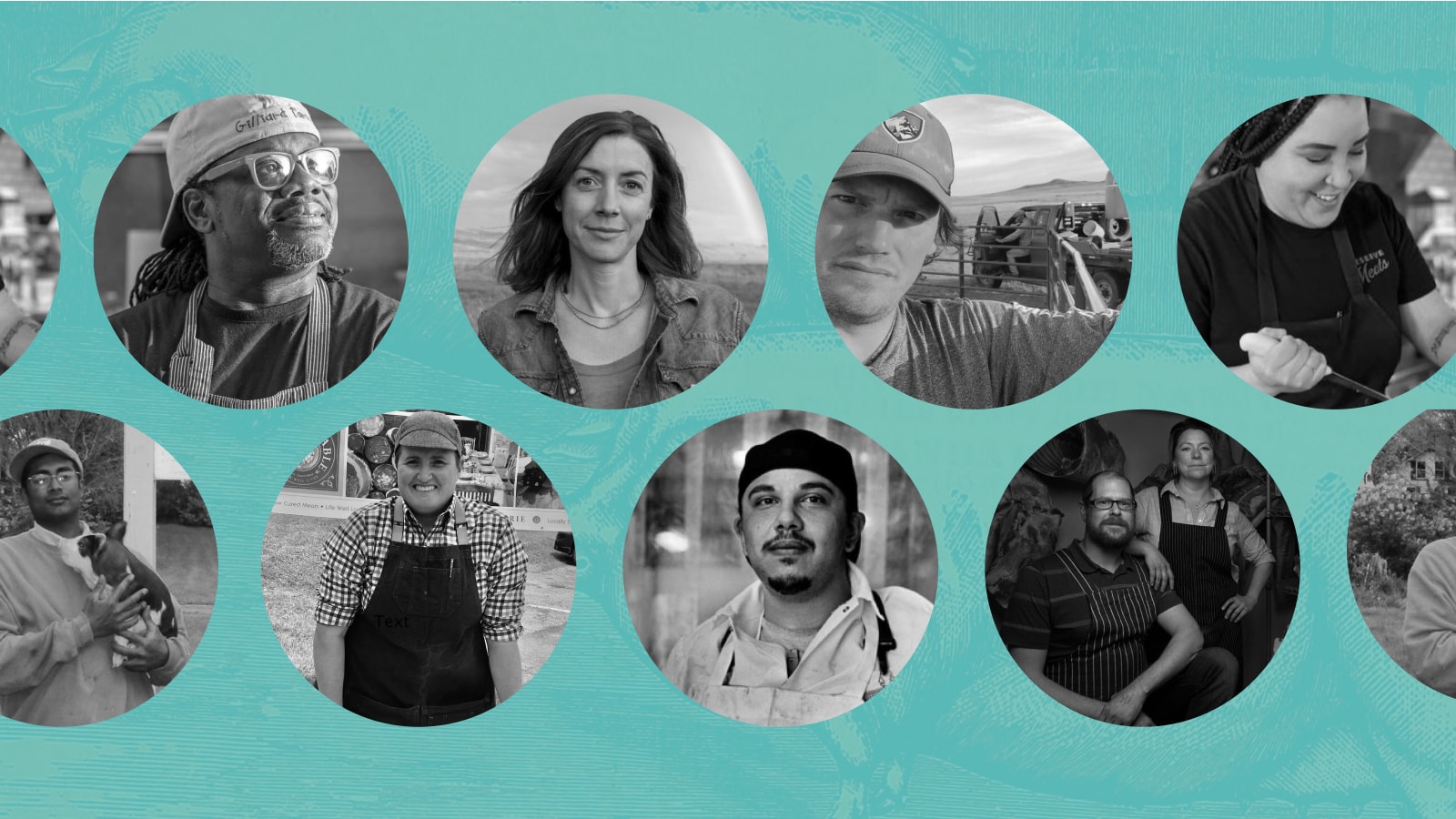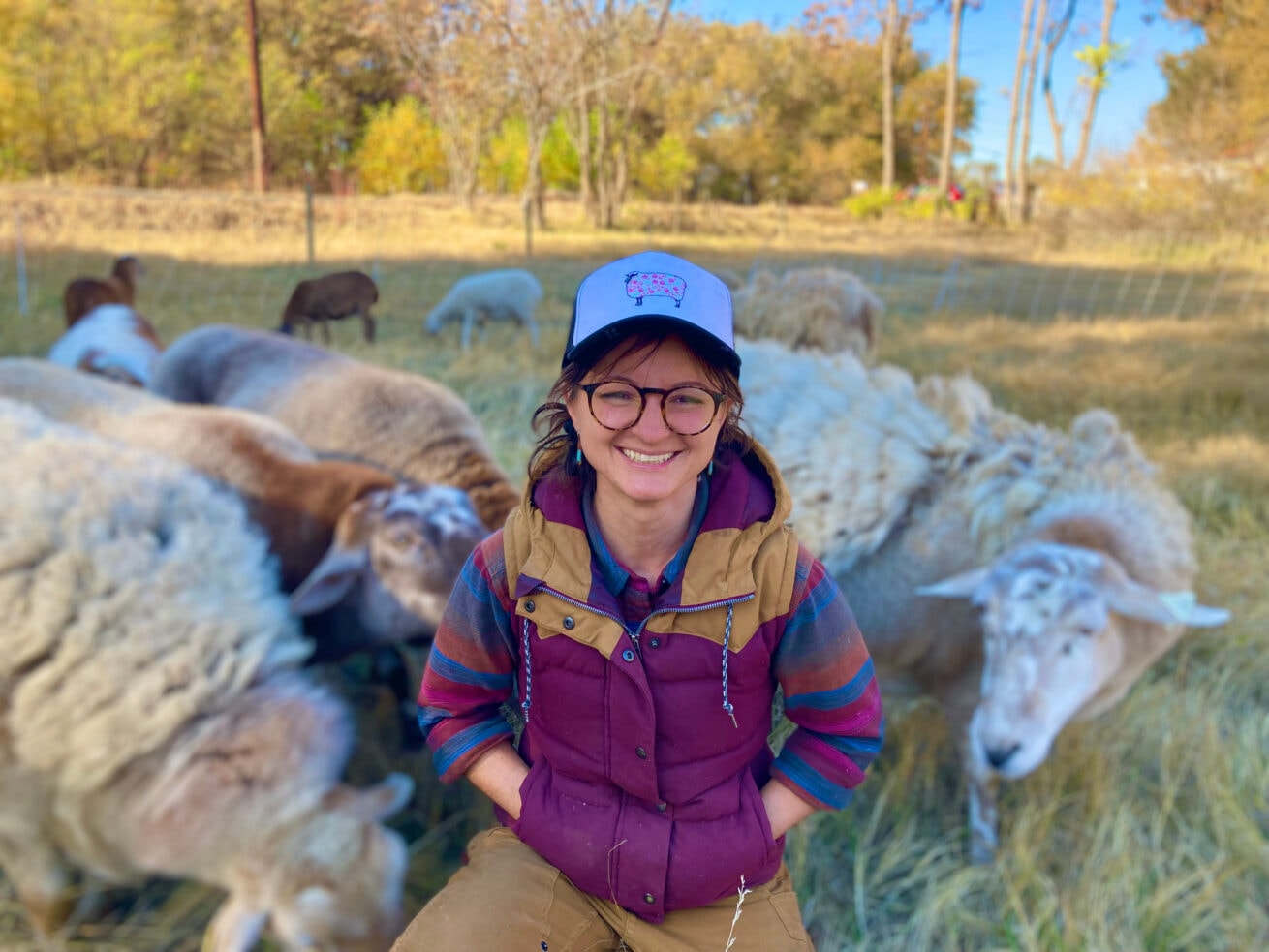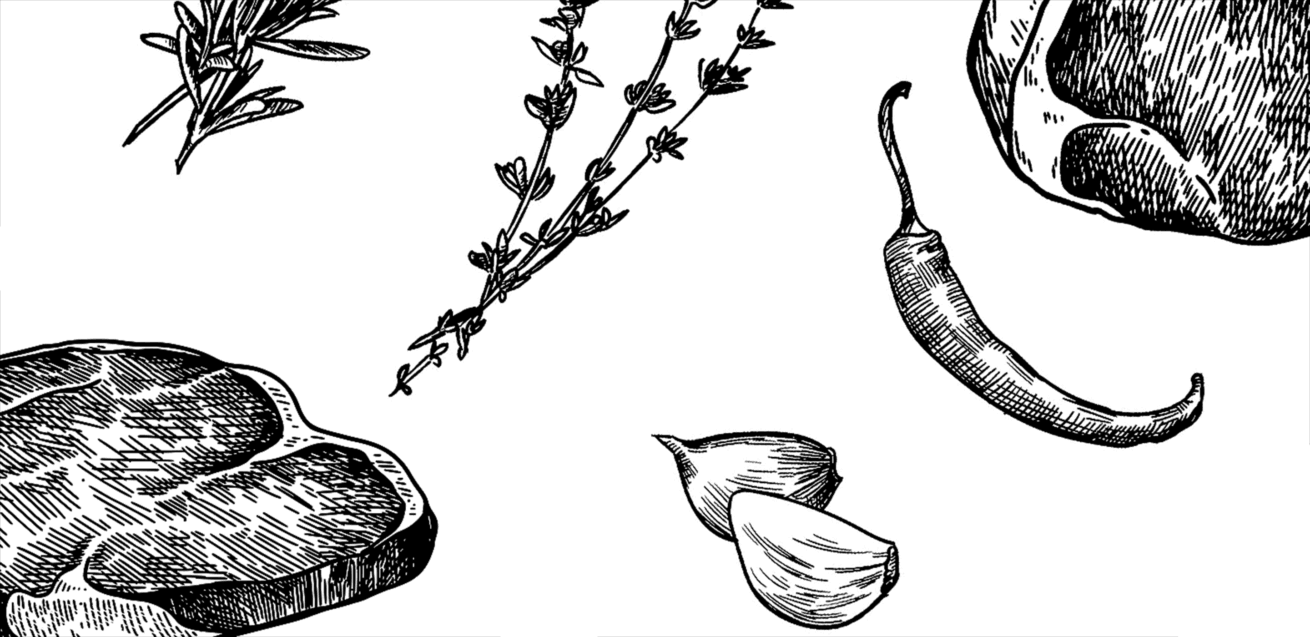Good Meat BreakdownGood Meat® Snapshots
Aubrey Gallegos


Aubrey is the Programs Manager for the Good Meat Project. A farmer, educator, and community organizer, Aubrey has worked on farms in the U.S and in countries all over the world, including England, Ireland, Scotland, Chile, and Thailand. As the farm manager at McDowell Farm School in Alabama, Aubrey managed integrated regenerative livestock and crops systems, and taught classes for k-12 students, adults, and young farmers. Simultaneously, she worked on a state-wide level on the board of directors for the Alabama Sustainable Agriculture Network (ASAN). Prior to her food systems work, Aubrey spent six years in community engagement and education at POV, an award-winning social issues documentary series on PBS. Along with her team, Aubrey developed national engagement campaigns, produced discussion guides and lesson plans, and facilitated 600+ free screening events across the country every year. She has also been a sailor and environmental educator aboard historic wooden ships in the Puget Sound and on the Hudson River.
In 2021, Aubrey moved back to her home state of Washington to start her own small, regenerative farm, specializing in grassfed lamb and pastured poultry. But it was never her goal to be a full-time farmer. Aubrey kept a keen eye out for the right organization to join where she could use her skills and experience to support other livestock farmers, and affect food system change on a larger level. The Good Meat Project was a perfect fit, and she’s thrilled to be a part of the team.
In addition to her sheep, turkeys, and chickens, Aubrey also has two livestock guardian dogs, Edna and Ori, a herding dog named Webster, and a rescue named Gibson. Her cat, Tillerman, doesn’t do much besides cause trouble, at which point she tells him, “No, Till!” – which is more regenerative. (That’s a no-till joke for all you farmers out there…)
Where do you live/work?
I live on a small farm tucked in next to the Yakima River, at the edge of the shrub-steppe ecosystem in the Tri Cities, WA.
How do you define your Good Meat® values?
My Good Meat® values revolve around connection and transparency. When meat is produced with deep connection to the animals, environment, local community, and individuals involved, it gives more than it takes. It comes from animals who live a life worth living and are managed in a way that returns nutrients to the soil and supports local ecosystems. It enhances community relationships, cultures, and economies. It supports butchery and culinary crafts and businesses. It nourishes consumers with nutrient-dense, high quality, and delicious food. And producers and workers are valued at every step in the process, with a long-lens towards bringing the next generation on board. When farmers produce meat according to their values, transparency follows. They can share their practices with pride, and consumers can make informed choices that match their own values.
Why is it important to center your Good Meat® values in your professional career and personal life?
Centering my life around my Good Meat® values means centering my life around solutions. My entry into the food system started with focusing on what I didn’t want: factory-farmed, industrialized, ultra-processed, nontransparent. But the more I focused on what I didn’t believe in, the harder it became to find food that I could eat. Once I started to narrow in on my own Good Meat® values, I realized they were actually all about solutions. Instead of just rejecting our current food system, I focused on building systems I do want: local, humane, and regenerative. I am not separate from my Good Meat® values. They are embedded in my lifestyle, they are in every meal I eat, in the conversations I have, the communities I am a part of, and the work I choose to dedicate my life to.
What is one thing you wish more people knew about the food on their plates?
I wish more people knew that really good, quality food can only be grown/raised when the basic needs of producers are being met. We can’t expect farmers to raise livestock to the highest level of animal welfare and ecological stewardship, resulting in the most delicious product, when they are constantly burned out. I know how hard it is to meet your own Good Meat® values when you have to pull an all-nighter to get your animals to the nearest processor, hours away, or you’re under constant stress because you can’t pay your bills despite working long hours 7 days a week, or you have to farm in the dark because you work multiple off-farm jobs, or you haven’t had a vacation because there’s no one to watch the farm and no such thing as paid time off. I see a lot of high expectations for producers, without the proper systems in place to remove major barriers to success. There is a culture of hard work and grit in farming, but that doesn’t mean producers don’t deserve support as they work to put good food on our plates.
What is one of the biggest challenges you face as a Good Meat® advocate?
Navigating the nuances. Even within humane, regenerative farming there are complicated issues to navigate, both individually and on community and systems levels. How do we walk the line between holding ourselves and each other to the high standards, while still making room for the diversity of opinions, practices, circumstances, values, priorities, and backgrounds that make each of us unique, and this field so robust? There is no one “right” way to produce Good Meat®. It can be tempting to split hairs and draw divisions, even within our own communities. We can only build a movement around Good Meat® if we work together, lift each other up, and focus on what we have in common.
What meat, or meat dish, do you eat most regularly and what do you eat for a special occasion?
My go-to easy meals are either grassfed lamb chops (the fanciest 5 minute meal ever) or tacos with grassfed beef and homemade tortillas made with pastured lard. I’m a huge fan of pastured lard. I’ll nerd out on rendering lard from pastured pigs with anyone, any day of the week.
I’m originally from New Mexico so, for special occasions, my family has a tradition of making posole. I use red and green chile, bone broth, hominy, home-grown onions and garlic, and my own lamb stew meat. It’s rich, flavorful, and reminds me of home.
Good Meat® Snapshots
Popular Links

Transparency in meat, from pasture to plate.
Practical tools and a national directory to help you choose—and champion—ethical and responsible meat.